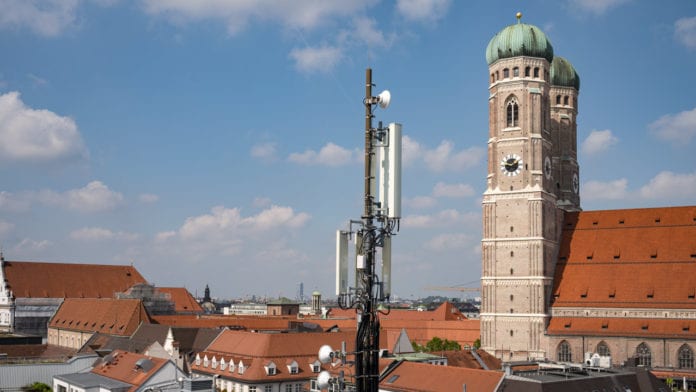Telefonica Deutschland
German operator Telefonica Deutschland/O2, controlled by Spanish telco Telefónica, is currently reaching 80 cities with its 5G technology, the operator said in a release.
The telco said that its current 5G network coverage is being provided by a total of approximately 2,000 5G antennas, which currently operate in the 3.6 GHz spectrum band.
“The potential of 5G is huge, both for new business models and processes in the economy and for a completely new real-time consumer experience. With 5G, we offer our customers an additional high-speed network for mobile data usage while enabling new digital applications such as virtual reality gaming or live streaming on TV,” said Markus Haas, CEO of Telefónica Deutschland/O2.
Hass previously said that the telco expected to cover more than 30% of the population with 5G and the whole of Germany by 2025.
The carrier said that 375 5G antennas are already transmitting on 3.6 GHz in capital Berlin. In Munich, around 175 5G antennas are transmitting, in Hamburg over 150, in Cologne and Stuttgart over 120 each, in Nuremberg 100, and in Bonn around 75 5G antennas, the telco said.
In addition, O2 has also brought its 5G network to numerous other cities in recent days including Leipzig, Regensburg, Pforzheim, Freiburg im Breisgau, Mülheim an der Ruhr and Wörth am Rhein.
The European telco had said it aims to build around 5,000 additional 5G antennas in the 3.6 GHz frequency band in 2021. In addition, Telefónica Deutschland / O2 said it will also deploy new, longer-range frequencies in the coming months to increasingly cover rural regions with 5G. This includes 5G on 700 MHz as well as the deployment of Dynamic Spectrum Sharing technology (DSS), which combines 4G and 5G.
Telefónica Deutschland/O2 had previously launched its new 5G standalone core network. The new 5G standalone servers in the Munich data center are already connected to 5G antennas in the O2 live network.
By summer 2021, the carrier says its focus will be on implementing the new 5G core network nationwide in all of its own data centers.
The telco also claims to be the first German network operator to bring the vendor-independent Open RAN technology out of the lab and into the O2 live network. Open RAN sites have already been transmitting since December 2020 in Landsberg am Lech – Germany’s first Open RAN City. From the fall of 2021, O2 will convert further locations to Open RAN.

